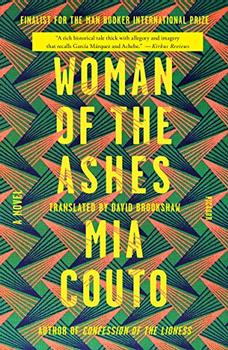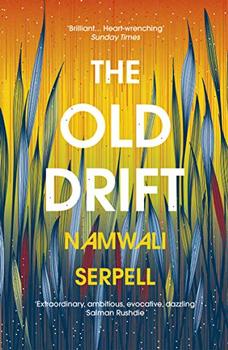Summary | Excerpt | Reviews | Beyond the book | Read-Alikes | Genres & Themes | Author Bio

A Sands of the Emperor Novel
by David Brookshaw, Mia CoutoThe first in a trilogy about the last emperor of southern Mozambique by one of Africa's most important writers.
Southern Mozambique, 1894. Sergeant Germano de Melo is posted to the village of Nkokolani to oversee the Portuguese conquest of territory claimed by Ngungunyane, the last of the leaders of the state of Gaza, the second-largest empire led by an African. Ngungunyane has raised an army to resist colonial rule and with his warriors is slowly approaching the border village. Desperate for help, Germano enlists Imani, a fifteen-year-old girl, to act as his interpreter. She belongs to the VaChopi tribe, one of the few who dared side with the Portuguese. But while one of her brothers fights for the Crown of Portugal, the other has chosen the African emperor. Standing astride two kingdoms, Imani is drawn to Germano, just as he is drawn to her. But she knows that in a country haunted by violence, the only way out for a woman is to go unnoticed, as if made of shadows or ashes.
Alternating between the voices of Imani and Germano, Mia Couto's Woman of the Ashes combines vivid folkloric prose with extensive historical research to give a spellbinding and unsettling account of war-torn Mozambique at the end of the nineteenth century.
If you are someone who needs a strong plot to enjoy a novel, this particular story may not be for you. However, if you are comfortable with a slow build, deep and intimate characterization and many conflicting viewpoints, Woman of the Ashes will deliver. While not without some faults, Couto creates an interesting snapshot of Mozambique under Portuguese rule. He paints the various cultural and social crises that this situation presents, placing them in a larger historical context. This is a slow, thoughtful read that will make you eager to learn more...continued
Full Review
 (519 words)
(519 words)
(Reviewed by Natalie Vaynberg).
 One of the most interesting characters in Mia Couto's Woman of the Ashes never formally makes an appearance – the emperor, Ngungunyane, the Lion of Gaza. Who is this powerful figure who ruled the Gaza empire (which encompassed southeastern Zimbabwe and southern Mozambique.) What led to his triumphs and, finally, to his downfall? What do we know about the empire that created him?
One of the most interesting characters in Mia Couto's Woman of the Ashes never formally makes an appearance – the emperor, Ngungunyane, the Lion of Gaza. Who is this powerful figure who ruled the Gaza empire (which encompassed southeastern Zimbabwe and southern Mozambique.) What led to his triumphs and, finally, to his downfall? What do we know about the empire that created him?
Ngungunyane was born into a family of power. His grandfather, Soshangane, was the founder of the Gaza empire. This founding was a direct result of Soshangane's defeat at the hands of Shaka Zulu in Zululand (modern day Zimbabwe); instead of joining the victorious party, he left his homeland to search for new land to call his own. Once his empire was...

If you liked Woman of the Ashes, try these:

by David Diop
Published 2024
The hotly anticipated new novel by David Diop, winner of the International Booker Prize.

by Namwali Serpell
Published 2020
An electrifying debut from the winner of the 2015 Caine Prize for African writing, The Old Drift is the Great Zambian Novel you didn't know you were waiting for.
Discovery consists of seeing what everybody has seen and thinking what nobody has thought.
Click Here to find out who said this, as well as discovering other famous literary quotes!